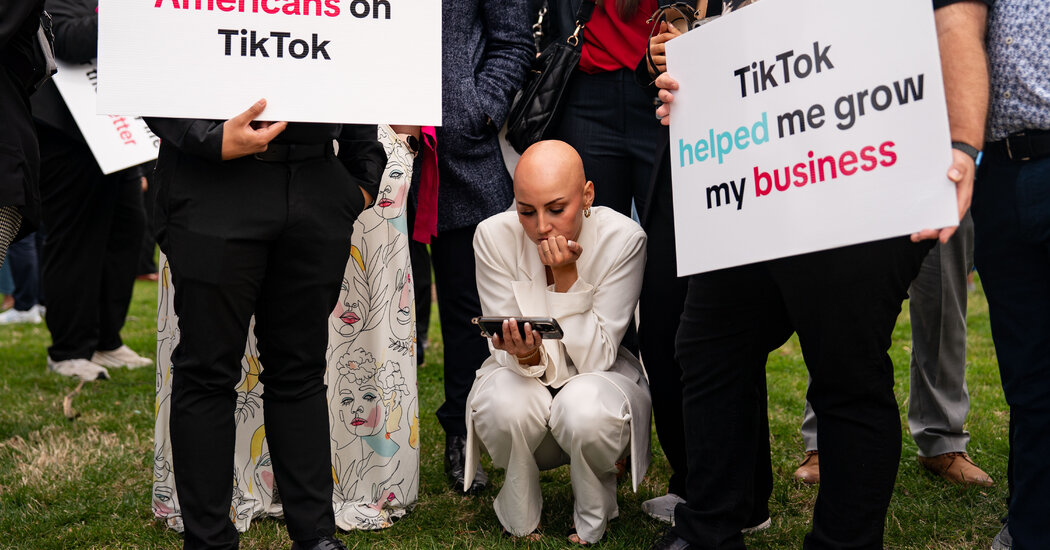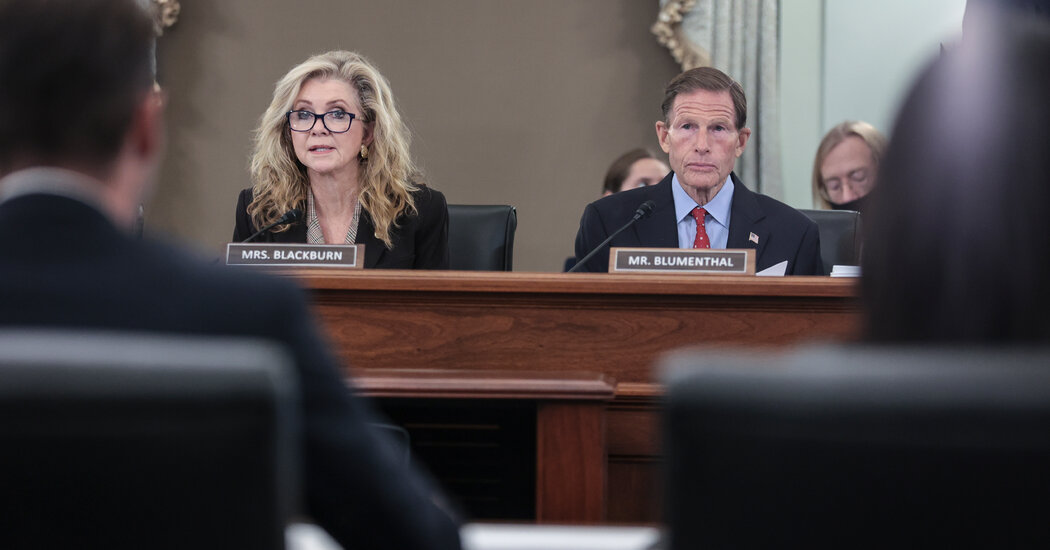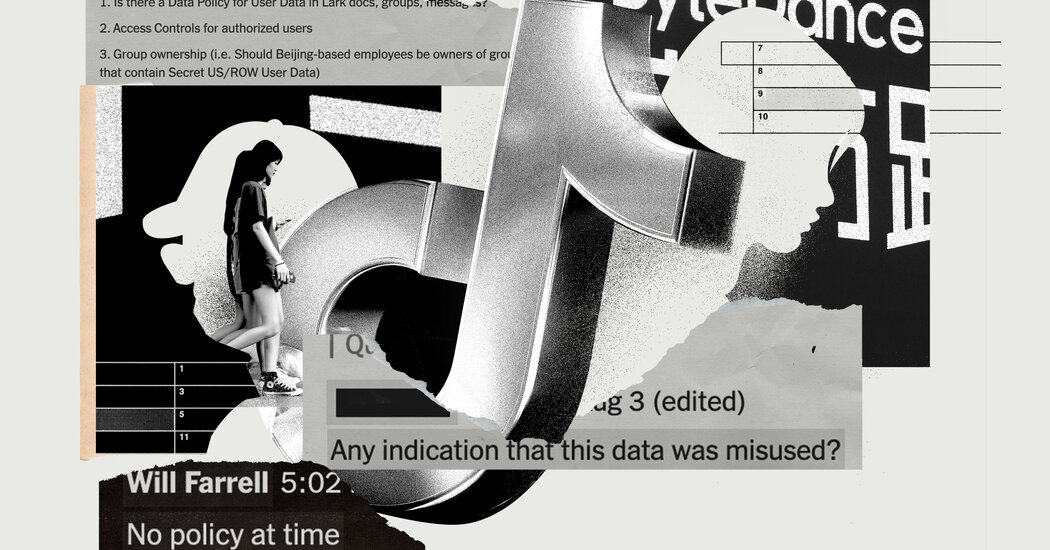I was really rooting for TikTok. In 2020, when the Trump administration first tried to force TikTok’s Chinese owner, ByteDance, to sell the app or risk having it shut down, I argued that banning TikTok in the United States would do more harm than good. Why? Partly because TikTok seemed like a convenient scapegoat for problems — invasive data collection, opaque content policies, addictive recommendation algorithms — that plagued all the big social media apps, and partly because I never bought the argument that the app was a Chinese spying…
Tag: Privacy
Biden Issues Executive Order to Restrict Personal Data Sales to China and Russia
President Biden issued an executive order Wednesday seeking to restrict the sale of sensitive American data to China, Russia and four more countries, a first-of-its-kind attempt to keep personally identifying information from being obtained for blackmail, scams or other harm. The president asked the Justice Department to write rules restricting the sale of information about Americans’ locations, health and genetics to China, Russia, Iran, North Korea, Cuba and Venezuela, as well as any entities linked to those countries. The restrictions would also cover financial information, biometric data and other types…
The Race to Avert Quantum Computing Threat With New Encryption Standards
They call it Q-Day: the day when a quantum computer, one more powerful than any yet built, could shatter the world of privacy and security as we know it. It would happen through a bravura act of mathematics: the separation of some very large numbers, hundreds of digits long, into their prime factors. That might sound like a meaningless division problem, but it would fundamentally undermine the encryption protocols that governments and corporations have relied on for decades. Sensitive information such as military intelligence, weapons designs, industry secrets and banking…
WeChat user numbers plummet nearly 30% in Australia amid concerns of Chinese interference
WeChat has said its user numbers in Australia have declined almost 30% in the past three years, amid questions being raised about foreign interference on the app. Tencent-owned WeChat told a parliamentary committee examining foreign interference on social media that as of July 2023, the communications app favoured by Australia’s Chinese diaspora community had fewer than 500,000 daily active users in Australia. The company told the committee in 2020 that its user base was 690,000. No reason was given for the decline in user numbers in Australia in the past…
Senators Accuse TikTok of Misleading Congress on U.S. User Data
Two senators sent a letter to TikTok’s chief executive on Tuesday, accusing the company of making misleading claims to Congress around how it stores and handles American user data, and demanding answers to more than a dozen questions by the end of next week. The letter, from Senators Richard Blumenthal, Democrat of Connecticut, and Marsha Blackburn, Republican of Tennessee, focused on how sensitive data about American users may be stored in China and how employees there may have access to it. The lawmakers said recent reports from The New York…
Inside How TikTok Shares User Data
In August 2021, TikTok received a complaint from a British user, who flagged that a man had been “exposing himself and playing with himself” on a livestream she hosted on the video app. She also described past abuse she had experienced. To address the complaint, TikTok employees shared the incident on an internal messaging and collaboration tool called Lark, according to company documents obtained by The New York Times. The British woman’s personal data — including her photo, country of residence, internet protocol address, device and user IDs — were…
Australian government resists blanket WeChat ban despite restrictions by multiple departments
The Australian government is resisting issuing a ban on WeChat on government devices despite many government departments instituting their own bans after the TikTok edict earlier this month. TikTok was banned from government devices in early April over data collection and security concerns connected to the Chinese government. The move followed a review by the home affairs department which examined a range of social media platforms, but TikTok was the only app singled out for an immediate ban. At the time TikTok was banned, dozens of federal departments had already…
TikTok’s CEO eluded the spotlight. Now, a looming ban means he can’t avoid it
Shou Zi Chew is not a prolific TikToker. The 40-year-old CEO of the Chinese-owned app has just 23 posts and 17,000 followers to his name – paltry by his own platform’s standards. Chew’s profile sees him attending football games, visiting Paris and London, trying Nashville hot chicken, or boating on a lake, often with generic captions. (“Love the outdoors!”). Users have noticed: “Bro the TikTok ceo with 41 likes,” one person commented on his video of the outdoors. “Shout out to this small creator,” another wrote. Suffice to say, Chew…
Why is TikTok banned from government phones – and should rest of us be worried?
TikTok is wildly popular, with more than 1 billion people consuming its short video posts around the world. But the app is less favoured by politicians in key markets such as the US and UK, where it has been banned from government-issued phones over security fears. We answer your questions about why TikTok has become a lightning rod for suspicion of Chinese state espionage – and whether nationwide bans are likely. Why has TikTok been banned from UK government phones? The main concerns with TikTok are related to data and…
The TikTok wars – why the US and China are feuding over the app
TikTok is once again fending off claims that its Chinese parent company, ByteDance, would share user data from its popular video-sharing app with the Chinese government, or push propaganda and misinformation on its behalf. China’s foreign ministry on Wednesday accused the US itself of spreading disinformation about TikTok’s potential security risks following a report in the Wall Street Journal that the committee on foreign investment in the US – part of the treasury department – was threatening a US ban on the app unless its Chinese owners divest their stake.…




